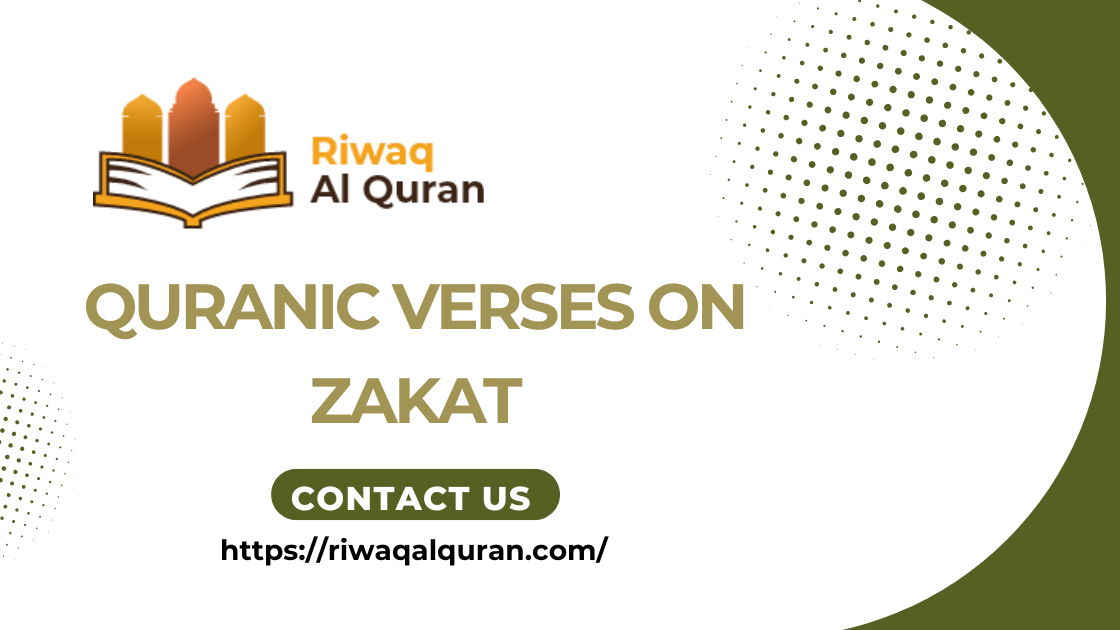Zakat is one of the five pillars of Islam—a powerful act of worship that purifies wealth and supports the community. The Quran emphasizes zakat as not just a charity but a divine obligation that brings spiritual reward and societal balance. Turning to Allah through dua for guidance in fulfilling zakat strengthens both your faith and your generosity.
This guide explores important Quranic verses on Zakat and presents powerful duas to help you seek Allah’s assistance in giving Zakat sincerely and effectively. Whether you want to understand the spiritual significance or ask for ease in fulfilling this duty, this article offers heartfelt supplications aligned with Quranic teachings.
Here are several authentic Quranic verses you can use to seek Allah’s help in fulfilling zakat and increasing your blessings:
Table of Contents
1. Quranic Verse on Zakat as an Obligation
Arabic: “وَأَقِيمُوا الصَّلَاةَ وَآتُوا الزَّكَاةَ”
Transliteration: “Wa aqīmū aṣ-ṣalāta wa ātū az-zakāh”.
Translation: “And establish prayer and give zakah.”
(Surah Al-Baqarah 2:43)
2. Quranic Verse on Zakat for Purification
Arabic: “خُذْ مِنْ أَمْوَالِهِمْ صَدَقَةً تُطَهِّرُهُمْ وَتُزَكِّيهِمْ بِهَا”
Transliteration: “Khudh min amwālihim ṣadaqatan tuṭahhiruhum wa tuzakkīhim bihā”
Translation: “Take from their wealth a charity by which you purify them and cause them to increase.”
(Surah At-Tawbah 9:103)
3. Quranic Verse on Zakat and Prayer Together
Arabic:
وَأَقِيمُوا الصَّلَاةَ وَآتُوا الزَّكَاةَ وَمَا تُقَدِّمُوا لِأَنْفُسِكُمْ مِنْ خَيْرٍ تَجِدُوهُ عِنْدَ اللَّهِ
Transliteration:
Wa aqīmū aṣ-ṣalāta wa ātū az-zakāh, wa mā tuqaddimū li-anfusikum min khayrin tajidūhu ʿinda Allāh
Translation:
“And establish prayer and give zakah, and whatever good you put forward for yourselves—you will find it with Allah.”
(Surah Al-Baqarah 2:110)
4. Quranic Verse on Zakat as a Sign of True Believers
Arabic: “وَالَّذِينَ هُمْ لِلزَّكَاةِ فَاعِلُونَ”
Transliteration: “Wa alladhīna hum lil-zakāti fāʿilūn”
Translation: “And those who pay the zakah.”
(Surah Al-Mu’minun 23:4)
5. Quranic Verse on Zakat and Brotherhood
Arabic: “فَإِنْ تَابُوا وَأَقَامُوا الصَّلَاةَ وَآتَوُا الزَّكَاةَ فَإِخْوَانُكُمْ فِي الدِّينِ”
Transliteration: “Fa in tābū wa aqāmū aṣ-ṣalāta wa ātaw az-zakāh fa ikh’wānukum fī ad-dīn”
Translation: “But if they repent, establish prayer, and give zakah, then they are your brothers in religion.”
(Surah At-Tawbah 9:11)
6. Quranic Verse on Zakat for the Poor and Needy
Arabic: “إِنَّمَا الصَّدَقَاتُ لِلْفُقَرَاءِ وَالْمَسَاكِينِ”
Transliteration: “Innamā aṣ-ṣadaqātu lil-fuqarā’i wal-masākīn”
Translation:“Zakah expenditures are only for the poor and the needy.”
(Surah At-Tawbah 9:60)
7. Quranic Verse on Zakat Leading to Blessings
Arabic: “وَمَا آتَيْتُمْ مِنْ زَكَاةٍ تُرِيدُونَ وَجْهَ اللَّهِ فَأُولَٰئِكَ هُمُ الْمُضْعِفُونَ”
Transliteration: “Wa mā ātaytum min zakātin turīdūna wajha Allāhi fa-ulā’ika humul-muḍʿifūn”
Translation: “And whatever you give for zakah, seeking the countenance of Allah—it is they who will have manifold increase.”
(Surah Ar-Rum 30:39)
8. Quranic Verse on Zakat Bringing Mercy
Arabic: “وَأَقِيمُوا الصَّلَاةَ وَآتُوا الزَّكَاةَ وَأَطِيعُوا الرَّسُولَ لَعَلَّكُمْ تُرْحَمُونَ”
Transliteration: “Wa aqīmū aṣ-ṣalāta wa ātū az-zakāh wa aṭīʿū ar-rasūla laʿallakum tur’ḥamūn”
Translation: “And establish prayer and give zakah and obey the Messenger—that you may receive mercy.”
(Surah An-Nur 24:56)
9. Quranic Verse on Zakat as a Sign of Righteousness
Arabic: “وَأَقَامَ الصَّلَاةَ وَآتَى الزَّكَاةَ”
Transliteration: “Wa aqāma aṣ-ṣalāta wa ātā az-zakāh”
Translation: “And establishes prayer and gives zakah.”
(Surah Al-Bayyinah 98:5)
10. Quranic Verse on Those Who Withhold Zakat
Arabic: “وَالَّذِينَ يَكْنِزُونَ الذَّهَبَ وَالْفِضَّةَ وَلَا يُنْفِقُونَهَا فِي سَبِيلِ اللَّهِ فَبَشِّرْهُمْ بِعَذَابٍ أَلِيمٍ”
Transliteration: “Wa alladhīna yaknizūna adh-dhahaba wal-fiḍḍata wa lā yunfiqūnahā fī sabīli Allāhi fabashshirhum biʿadhābin alīm”
Translation: “And those who hoard gold and silver and spend it not in the way of Allah—give them tidings of a painful punishment.”
(Surah At-Tawbah 9:34)

The Power and Significance of Dua for Zakat
Zakat is not just a pillar of Islam; it is a profound act of worship that purifies wealth and nurtures the soul. Alongside fulfilling this important obligation, making dua for zakat—asking Allah to accept it and bless its impact—carries immense spiritual power. Dua transforms a simple act of charity into a heartfelt conversation with the Creator, connecting our material giving with divine mercy and blessings.
Dua is an Act of Worship
The Prophet ﷺ said, “Dua is worship” (Tirmidhi). When a believer gives zakat and raises their hands in supplication, they are engaging in an act beloved to Allah—combining action with sincere invocation. This dual act amplifies the reward and strengthens one’s relationship with Allah.
Dua Ensures Acceptance and Barakah
Zakat purifies wealth, but without Allah’s acceptance, its true benefit is incomplete. Asking Allah through dua for the acceptance of zakat and that it be a source of barakah (blessings) in one’s life and for the recipients is essential. The Quran reminds us, “Take, [O, Muhammad], from their wealth a charity by which you purify them and cause them increase…” (Quran 9:103). Dua invites Allah’s mercy to fulfill this promise of purification and growth.
Dua Reflects Trust and Sincerity
Giving zakat involves both physical giving and spiritual surrender. Dua for zakat expresses reliance (tawakkul) on Allah’s wisdom and mercy. It’s a way to seek Allah’s help to give sincerely, to distribute justly, and to have the wealth used in ways pleasing to Him.
Zakat as a Means to Build Compassion and Social Justice
By making dua for zakat, we not only seek personal benefit but also pray for the upliftment of society—that the wealth reaches those in need, relieves hardship, and strengthens communal bonds. Dua magnifies zakat’s impact beyond the physical, transforming it into a source of ongoing mercy for all.
In short, dua for zakat is the spiritual key that unlocks the full potential of this vital pillar—ensuring it purifies hearts, multiplies blessings, and builds a just, compassionate community under Allah’s care.
Practical Steps to Complement Your Duas
1. Understand the Meaning of Your Dua
Taking time to learn the meaning behind your supplications deepens your connection with Allah and makes your dua more heartfelt and focused.
2. Make Dua with Full Sincerity and Presence
Focus your heart and mind when making dua. Remove distractions, be humble, and truly feel your need before Allah.
3. Be Consistent and Patient
Regularly make dua and trust that Allah will respond in the best way and timing. Patience strengthens faith and perseverance.
4. Pair Dua with Action
While dua is powerful, Islam encourages taking practical steps toward your goals alongside prayer. For example, give zakat sincerely but also seek to help those in need actively.
5. Use the Best Times to Make Dua
Certain moments—such as during the last third of the night, between the call to prayer and the prayer itself, or while prostrating—are especially blessed for making dua.
6. Maintain Hope and Avoid Despair
Always have hope in Allah’s mercy and wisdom, even if your dua’s answer seems delayed or different from your expectation.
7. Teach and Share Dua with Family
Encourage your loved ones, especially children, to learn and make dua regularly to build a lifelong habit of spiritual reliance.
By combining these practical steps with sincere dua, you open the door for Allah’s mercy, guidance, and blessings to enter your life more fully.
Learn Quran and Islamic Studies with Riwaq Al Quran
Making dua is the first step toward spiritual growth, but the next vital step is seeking knowledge. At Riwaq Al Quran, we empower learners of all ages to deepen their understanding of the Quran and Islamic teachings with expert guidance.
Whether you want to memorize the Quran, master tajweed, or explore Islamic studies, our qualified instructors provide personalized, compassionate tutoring designed to fit your schedule and learning style.
What We Offer:
- One-on-One Quran Classes for personalized attention
- Tajweed and Recitation Courses to perfect pronunciation
- Islamic Studies for all ages, covering faith, history, and ethics
- Flexible Online Scheduling for learning anywhere, anytime
- Certified, Experienced Teachers trusted by thousands worldwide
At Riwaq Al Quran, we believe that every dua for knowledge deserves to be paired with action. Join thousands of students who have transformed their spiritual journey through our courses.
Ready to begin?
Enroll today and take the next step in your Quranic and Islamic learning journey.
When Is the Best Time to Make These Duas?
Making dua is a beautiful way to connect with Allah at any time, but certain moments hold special significance and are more likely to be accepted. Here are some of the best times to make your duas:
- During the last third of the night, just before Fajr
- Between the call to prayer (Adhan) and the start of the prayer (Iqamah)
- While in sujood (prostration) during Salah, when you are closest to Allah
- When fasting, especially right before breaking your fast
- On Fridays, particularly during the last hour before Maghrib prayer
- When it’s raining, as mercy and blessings are abundant
- While visiting sacred places like the Masjid al-Haram or during Hajj and Umrah
Praying at these blessed times can increase the acceptance and impact of your supplications.
Can I Say These Duas in English, or Do They Have to Be in Arabic?
Yes, you can say these duas in English or any language you feel comfortable with—especially if you are still learning Arabic. What truly matters is the sincerity of your heart and your connection with Allah when making the supplication.
Why Arabic Is Recommended:
Many duas are directly from the Qur’an or the Sunnah, and reciting them in Arabic preserves their original wording, rhythm, and beauty. It also helps you gradually become familiar with the language of the Qur’an.
Why Saying Dua in English (or Any Language) Is Still Valid:
If you don’t yet know the Arabic version, it’s perfectly acceptable to say the dua in your language. Allah understands all languages and knows your intentions even before you speak.
Tip:
Try learning the dua line by line in Arabic while understanding its meaning in English. This approach helps you memorize the dua and appreciate its spiritual depth at the same time.

How Can I Help My Child Learn These Duas?
Helping your child learn duas is a wonderful way to build their spiritual connection with Allah from an early age. With patience and creativity, you can make the process enjoyable and meaningful for them.
Start Small and Simple
Begin with short, easy duas and repeat them regularly until your child feels comfortable. Gradually introduce longer ones as they grow.
Use Repetition and Melody
Children learn best through repetition and rhythm. Recite the duas together daily, using a gentle, melodic tone to make it fun and memorable.
Incorporate Visual Aids
Use flashcards, colorful charts, or videos with animations and sounds to make learning interactive and engaging.
Make Dua Part of Routine Activities
Connect each dua with daily tasks like waking up, eating, or going to bed. This helps your child remember them naturally through habit.
Lead by Example
Children imitate what they see. Recite duas regularly yourself so your child understands their importance and enjoys the practice.
Explain the Meaning
Help your child understand what each dua means. Knowing the meaning makes the words more meaningful and easier to remember.
By combining love, consistency, and creative teaching methods, you’ll help your child build a lifelong habit of turning to Allah through dua.
Explore Our Quran Kids Courses Now—and choose from a wide variety of programs tailored for every level:
- Quran Recitation Course for Kids
- Quran Memorization (Hifz) Course
- Tajweed for Kids
- Islamic Studies for Kids
- Dua and Hadith Memorization Course
- Arabic Language for Kids
Let your child embark on their learning journey with qualified teachers, structured lessons, and a lasting love for Islam.
Explore Our Quran Kids Courses Now
Learn Quran, Arabic And Islamic Studies Online With The Best Native Tutors
Riwaq Al Quran is a comprehensive online platform that offers personalized Quran, Arabic and Islamic Studies Online classes for individuals of all ages and backgrounds.
Their experienced instructors use a structured curriculum to cover Tajweed, Tafsir, and Memorization, providing easy and effective access to learning the Quran.
The advanced online classes allow for seamless communication and interaction between students and teachers. Join Riwaq Al Quran for a deeper connection with the Quran.
We offer several courses such as:
- Online courses for kids.
- Online Quran classes for kids and adults.
- Online Arabic courses
- Online Ijazah courses
- Online Islamic Studies courses.
Here are a sample of our set of Quran Courses that will be helpful for you:
- Online Tafseer Course: Delve into Quranic meanings with our insightful online Tafseer course.
- Noorani Qaida Online: Learn Quranic basics efficiently through our Noorani Qaida online program.
- Online Quran Recitation Course: Enhance Quranic recitation skills through our expert-led online course.
- Online Tajweed Classes: Master Tajweed rules for beautiful Quranic recitation in online classes.
- Quran Memorization Online Course: Memorize the Quran effectively with our specialized online memorization course.
- Online Qirat Course: Explore diverse Qirat styles with our comprehensive online Qirat course.
- Online Quran Classes for Kids: Nurture a love for the Quran in kids through interactive online classes.
Conclusion
Making dua is a powerful way to seek Allah’s help, mercy, and guidance in every aspect of life. Whether you’re asking for protection, success, or blessings, sincere supplication connects your heart directly to the Creator. The specific duas shared here can serve as a meaningful foundation for your prayers, helping you build a stronger spiritual connection.
Remember, dua is most effective when combined with genuine effort, patience, and trust in Allah’s wisdom. Keep your heart sincere, continue learning, and never lose hope in Allah’s mercy. With consistent practice, your duas will become a source of comfort, strength, and inspiration throughout your life.


































